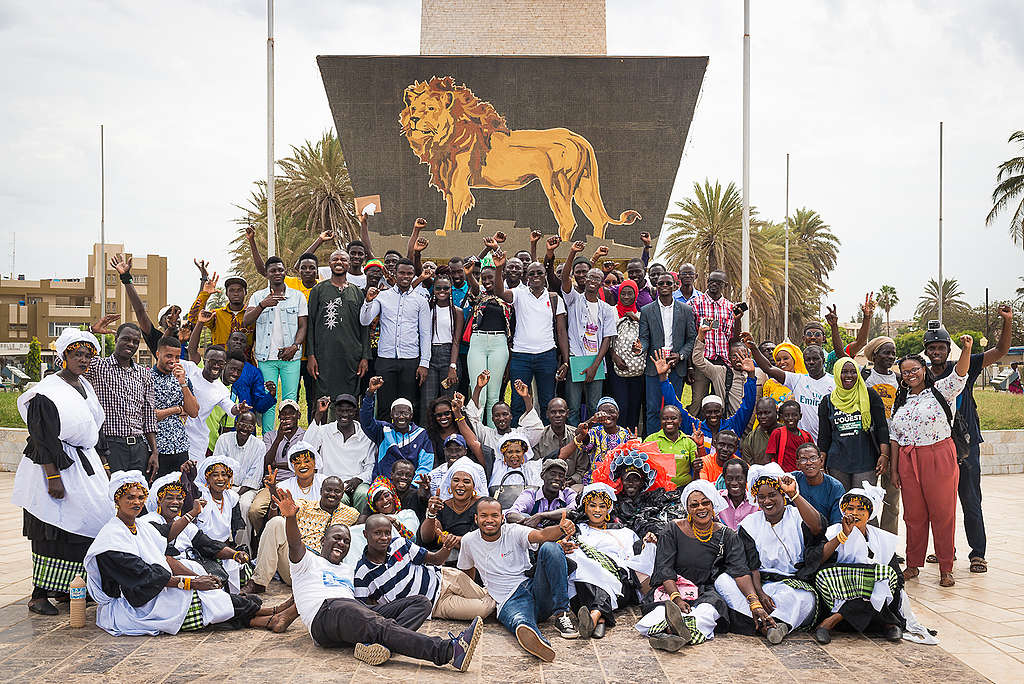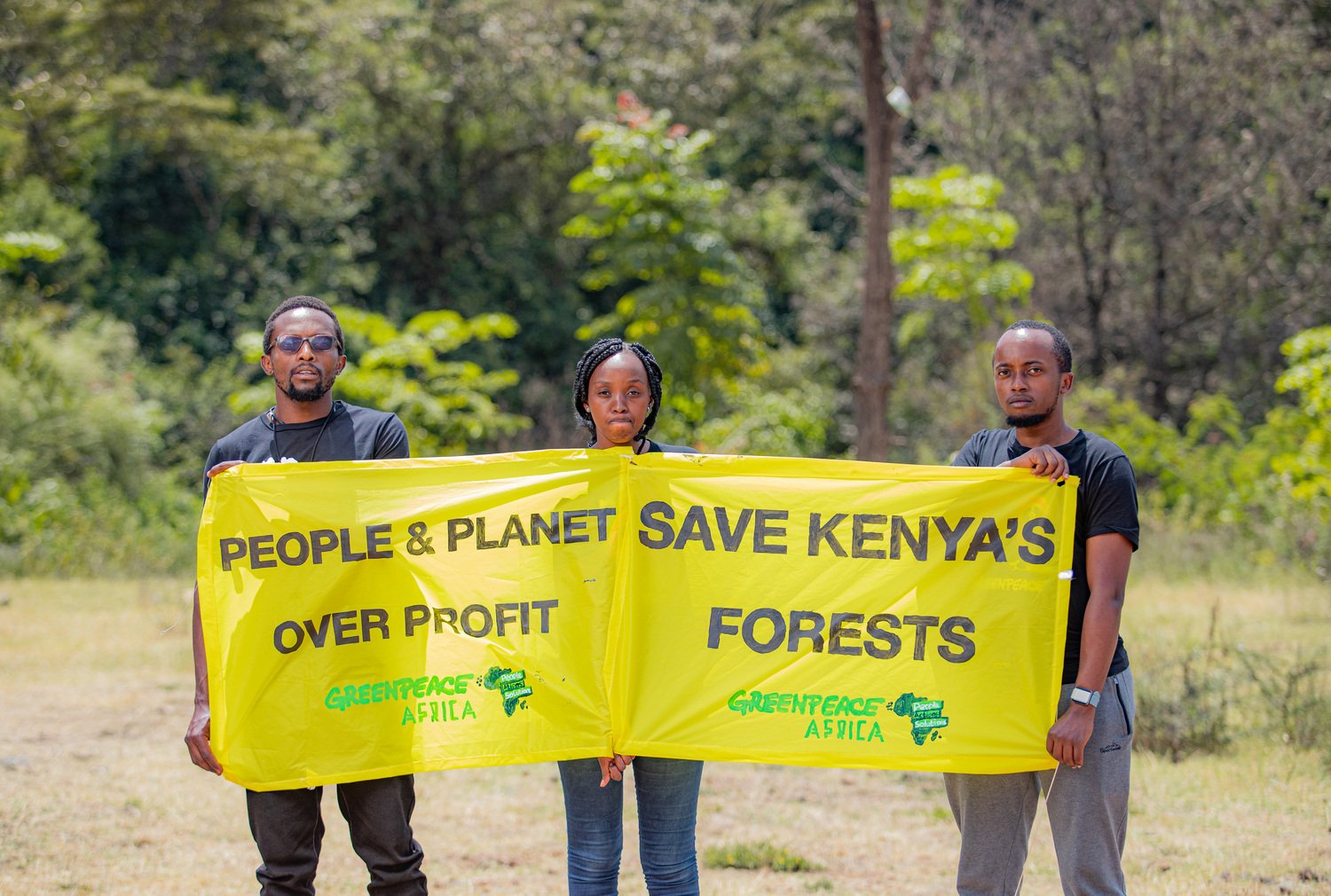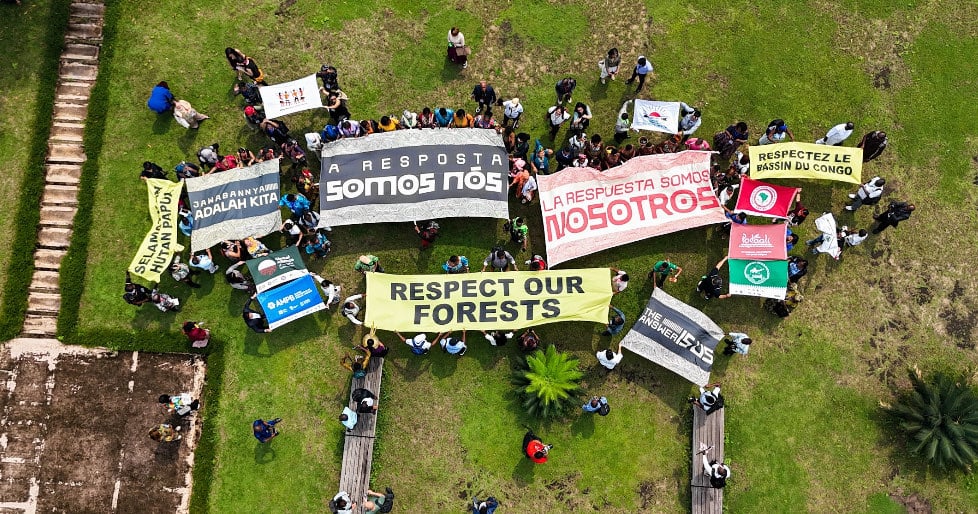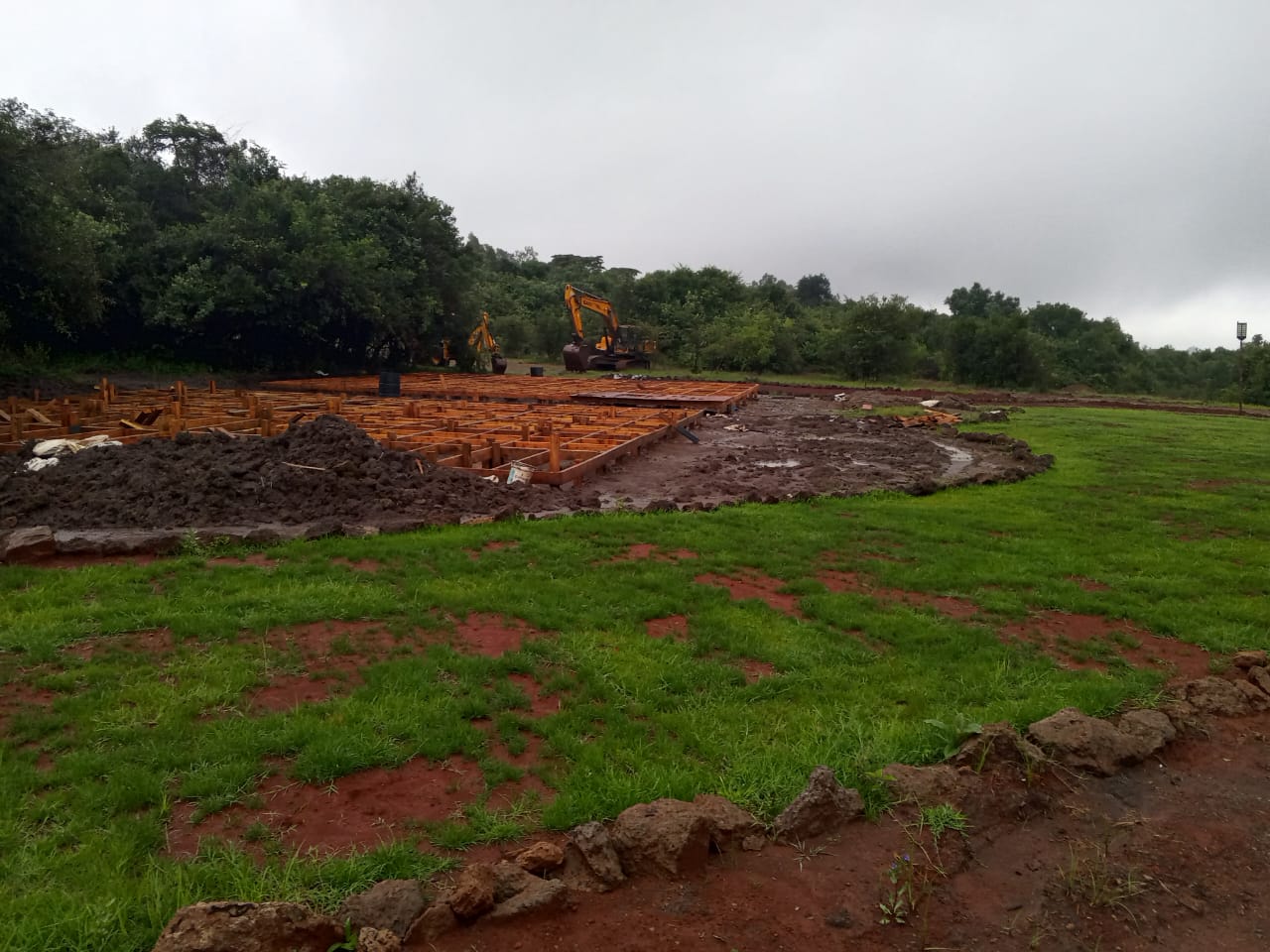Looming climate catastrophe if international community stays silent on plan to open up the world’s second-largest rainforest to industrial logging, warn NGOs
Kinshasa, 02 September 2021 – In a letter to international climate funders, a group of leading environmental and human rights organisations warn of an impending climate and biodiversity catastrophe following a plan to lift a nearly 20-year ban on new logging permits in the country, announced by the Vice Prime Minister, Environment and Sustainable Development Minister, Eve Bazaiba. [1]
The Democratic Republic of Congo (DRC) harbours the world’s second-largest rainforest after Brazil. It is home to 40 million people, a carbon store and a biodiversity reserve of global significance. It is also a natural barrier against the spread of zoonotic diseases. While parts of the Amazon are now becoming net carbon emitters [2], the Congo Basin has so far remained relatively intact, although deforestation rates have crept up in recent years.
The plan to lift the national logging moratorium, in place since 2002, threatens to deepen the climate crisis at a time when the world is way off track to keep global warming to within the 1.5 Celsius above pre-industrial levels – the maximum needed to avoid the most devastating impacts of climate change. [3] It also comes ahead of a crucial international biodiversity conference to be launched in Kunming, China, next month and the climate conference in Glasgow this November, and amid negotiations between the Central African Forest Initiative (CAFI – a grouping of international governments) and the DRC government over a purported 1 billion dollar package to protect its forests.
Should the moratorium be lifted as planned, the NGOs warn that the area of DRC’s rainforest handed out to timber companies could increase by 20 million hectares – an area the size of Britain. However, potentially as much as 60-70 million hectares of intact forest [4], home to thousands of local and indigenous communities and endangered species such as the lowland and mountain gorillas, forest elephants and the endemic Okapi, are under threat. It is well established that even ‘selective’ logging is the dominant cause of intact forest loss in Africa, as it relies on an extensive road network to reach low densities of commercially valuable trees. [5]
Analysis by the Rainforest Foundation UK (RFUK) shows that amongst the forest areas likely to be handed over to loggers would be more than a million hectares growing on peat swamps. They are believed to store more than 2,000 tonnes of carbon per hectare. The amount of carbon dioxide at risk of being released from DRC’s peat swamp areas under new logging concessions alone has been estimated as being over 10 billion tonnes, equivalent to nearly 200 years of Norway’s annual national carbon emissions. [6]
In the letter to the donors, the NGOs warn that there is nothing in the existing logging concession system to suggest why any credible international support programme to protect DRC’s forests would condone any expansion of it. [7] Logging in DRC is rife with corruption, the cause of widespread environmental damage and social conflict, and generates almost no benefits for the Congolese economy. Not only would lifting the ban contravene a 2005 Presidential order but it is also estimated that many of the existing logging concessions in the country are illegal. [8]
In recent years, there have been several major breaches of the moratorium, covering millions of hectares. Local Congolese NGOs have filed a legal case against the former Environment Minister. Most recently, the current Environment Minister has also staunchly refused to respond to public outcry regarding the illegal award last year of a forest ”conservation” concession the size of the Bahamas to a firm one of whose shareholders is a Belgian mining entrepreneur. [9]
Rather than expanding the logging industry, the NGOs and other Congolese groups say it should be scaled back with far greater support provided to local and indigenous communities living on the frontline of tropical deforestation. [10] The scientific evidence from around the world increasingly shows that forests under local and indigenous control store more carbon, harbour more biodiversity and benefit more people, as recognized by the Intergovernmental Panel on Climate Change (IPCC) and the Intergovernmental Science-Policy Platform on Biodiversity and Ecosystem Services (IPBES).
Irene Wabiwa Betoko, International Project Leader for the Congo Basin forest: “Congolese President Félix Tshisekedi made a promise in the last Virtual Leaders’ Summit on Climate to expand forest protection. Months later, he voted for renewed industrial logging. International donors speak of Green plans in Brussels, London, or DC, while continuing to fund countries with policies that hurt local communities, accelerate mass extinction and warm up the planet. The Congolese people and the international community deserve more.”
Joe Eisen, Director of Rainforest Foundation UK (RFUK), said, “With the fast diminishing global carbon budget to avoid the worst impacts of climate change, any lifting of the logging ban represents one of the single biggest threats to tropical forests anywhere on the planet. Rather than staying silent on this ill-thought plan, the international community must now work with the Congolese government and civil society to support local and indigenous communities to protect and thrive in the vital ecosystem.”
Tørris Jæger, General Secretary of Rainforest Foundation Norway (RFN), said “Sustainable development for present and future generations in DRC depends directly on the protection of the country’s remaining intact tropical forests. Securing indigenous peoples’ lands – a priority for DRC President Tshisekedi, and substantial increase of support to community forest management should be strategic priorities for DRC, including in their partnership with the Central African Forest Initiative.”
ENDS
Media contacts:
- Tal Harris (Greenpeace Africa, International Communications Coordinator), [email protected], [email protected], +221-785366270
- Joe Eisen (RFUK Director) [email protected], +44 (0) 207 485 0193
- Tørris Jæger (RFN General Secretary) [email protected], +47 476 55 132
Notes to editor:
[1] The announcement of the planned lifting of the moratorium can be found here.
[2] Many scientists believe that some parts of the Amazon are now becoming net carbon emitters.
[3] A recent assessment of nationally determined contributions (NDCs) to the Paris Climate Accord found the world is way off track to keep global warming to below 1.5 Celsius above pre-industrial levels.
[4] DRC contains an estimated 60-70 million hectares of intact forest, an area roughly the size of France.
[5] Selective logging is the biggest driver of intact tropical forests.
[6] See here for the analysis of the potential carbon emissions from an increase in industrial logging in the Cuvette Centrale peatlands in DRC.
[7] See the NGO letter to international donors here.
[8] The 2005 Presidential Order on the DRC logging moratorium.
[9] An example of recent illegal allocations in DRC can be found here.
[10] See this recent study on the lack of climate funding reaching Indigenous Peoples and other local communities.




